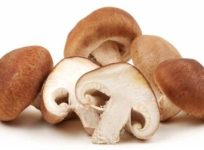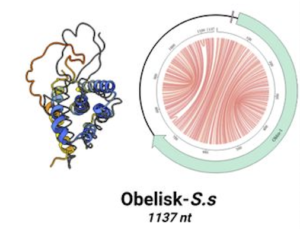Within a few months of being born, a child will start to naturally turn choline into acetylcholine, a neurotransmitter that stimulates Alpha 7 receptors, according to Dr. Ross. Before birth, however, the body doesn’t produce acetylcholine. The Alpha 7 receptors – and their associated circuits – are developed and stimulated directly by the fetus’ intake of choline, which of course is entirely dependent on maternal intake.
Adult schizophrenics are not necessarily deficient in choline or acetylcholine. Rather, they show a deficiency in the Alpha 7 receptors themselves. Dr. Ross’ group has been focused on studying the role of choline in development of these important receptors.
Faster Filtering
To that end, Dr. Ross and his team recruited 100 healthy, non-smoking women in their first several months of pregnancy. Half were given a daily dose of what amounts to about 900 milligrams of choline—roughly the same amount that’s found in three large eggs. The other group was given placebo.
The women on active supplementation were actually taking phosphatidylcholine because when adults take choline supplements, it produces a urine-like smell, which would have compromised the blinding of the study. Besides, it is highly unpleasant.
“We figured nobody would want to do that,” Dr. Ross said. Phosphatidylcholine, however, delivers the choline to the body without the smell.
When the babies were born, researchers continued giving them doses that included about 100 milligrams of choline, about as much as is found in a third of an egg. The treatment continued until the children were about three months old.
Then the testing came. Dr. Ross and his team tested each child’s brain waves in response to two rapid clicks.
In this type of test, non-schizophrenic adults usually show a big response to the first click and a much reduced brain wave to the second. “We’ve already heard it, there’s no new information, we block it out,” Dr. Ross said. “People with schizophrenia … have a big brain wave response to both sounds.”
In the current study, about 76% of the children who received supplemental choline showed a lowered response to the second click. Of the children who received placebo, only about 43 percent showed a lowered response, according to Dr. Ross. The data were published in the Jan. 15 edition of the American Journal of Psychiatry.
What’s Next?
While the results of the study were powerful, it’s far too soon to start recommending that expecting mothers should rush to buy eggs and up their choline intake, Dr. Ross said.
“Improving a brain wave test is one thing,” Dr. Ross said. “Demonstrating that that actually has an effect on the child long-term is another. So we’ll follow these kids as they get older and see whether or not behavior is better, attention is better, all those things are better as they get older.”
Provided he finds more funding, Dr. Ross will also go back and repeat the trial, perhaps with a higher dose of choline to see if it will be effective for more than 76 percent of children.
Since adults with schizophrenia aren’t generally deficient in acetylcholine, but rather in the neuroreceptors that allows it to be effective, Dr. Ross said that supplementation doesn’t make much sense for people already diagnosed with the disorder. “Choline no longer is effective at that point,” he said. “You need something that’s even better than acetycholine, like a drug.”
While research for a drug is ongoing, Dr. Ross is not involved.
Dr. Ross also stressed that solving the Alpha 7 developmental riddle is not necessarily an answer to ending all schizophrenia, because it doesn’t define the illness.
“Schizophrenia is a very complicated disease,” Dr. Ross said. “It’s the combination of lots of little things that go wrong. And all those little things go wrong very commonly. … Lots of people have them, and very few of those people have schizophrenia.”
END
Gabrielle Zastrocky is a multimedia journalist currently reporting for Evergreen Newspapers in the foothills outside of Denver. She specializes in the fields of education and health care, and has strong interests in energy, religion and business.







